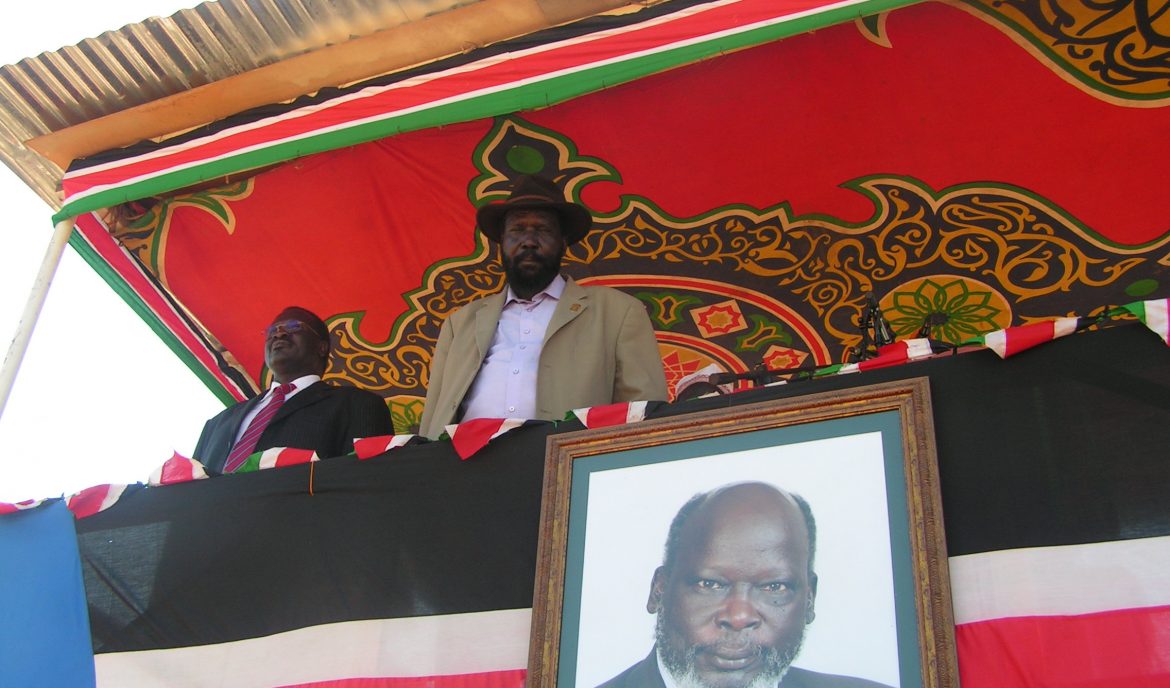The intense fighting in South Sudan’s capital on Friday, Sunday and Monday finally subsided today, but the violence may impact the region, including neighboring Sudan.
“Good morning Juba,” writes journalist Victor Lugala in social media. “The mood is changing, I feel like going out to jog bare-chested, my ribs are aching from lying on the floor while taking cover.” Many Juba residents were compelled to lie on the ground for those three days as intense fighting between South Sudan’s Sudan People’s Liberation Army (SPLA) under President Salva Kiir and the SPLA-IO (in opposition) led by Vice-President Riek Machar took place. Despite a peace agreement signed between them nearly a year ago, Machar’s forces have only recently returned to the capital, Juba to be reintegrated into the national army. South Sudan’s Health Minister claimed 271 were dead on Saturday but the toll is now expected to be higher, according Adut Akol, the Director of the Emergency Department at Juba Teaching Hospital.
Thousands of residents fled their homes, mostly on foot over the bridge to neighboring Gumbo village. Others, unable to leave, hid in churches and two U.N Protection of Civilians (PoC) sites to avoid heavy shelling –even explosions, from several Juba neighborhoods including: Jebel, Gudele, Tongping, Hai Cinema, Muniki, among others. “I am now hiding in a church with only my shirt on my back,” said James Kamba Sunday evening, after bullets passed through his window in the Jebel, Rock City area. “I don’t know how or even where but I’ll leave here [Juba] tomorrow.” Even those who fled to the UN protection areas were not safe –the maternity wing of a hospital in UN PoC site near Jebel was hit by artillery during today’s clashes.
Both Kiir and his re-instated rival Machar signed a cessation of hostilities Monday evening. Celebratory gunshots filled the air the same night; with some residents interpreting the sound as further warfare.
The two politicians admitted in a press conference at the outbreak of fighting that they could not understand the conflict’s causality –indicating a lack of control. The military leaders from both camps seem to be calling the shots and fighting each other, ignoring any political goodwill among the executive, according to one SPLA official, preferring anonymity. “My reading is that most of the generals, especially the current SPLA Chief of Staff, has become so powerful and does not believe in the peace process,” said Biel Boutros Biel, the Head of the human rights organization, South Sudan Human Rights Society for Advocacy.
Both warring parties ignored the U.N. Security Council’s call to quell the violence, said UN South Sudan Spokesperson Shantal Persaud on Monday. The council is now debating whether to ask member states to prepare additional troops to intervene. “There is a general realization and calculation by those generals against peace that the UN and the entire international community is reduced to issuing mere statements that have no impact on ground,” Biel says, “Thus words without actions have encouraged impunity.”
The Juba conflict has triggered fighting across Sudan, potentially affecting Sudan if such outbursts occur again. The fighting in Juba Monday triggered conflict in Torit, Lainya, Magwi and Bentiu while other areas such as Malakal remain on tenterhooks, fearing another violent outbreak. This could mean more problems for Sudanese refugees fleeing the fighting in South Kordofan and Blue Nile States –including severe economic pressures on refugee areas such as Yida, which hosts the largest market in Ruweng State (formerly Unity State). Conflict in Bentiu and Malakal, for instance, could induce many Sudanese refugees from Yida, Ajuong Thok and Maban to return to Sudan, says one humanitarian worker operating in the Nuba Mountains, preferring anonymity. Thousands of Sudanese refugees would be compelled to return to the very fighting they fled from in the first place to locations in South Kordofan and Blue Nile, where no humanitarian assistance is available, the aid worker said.





